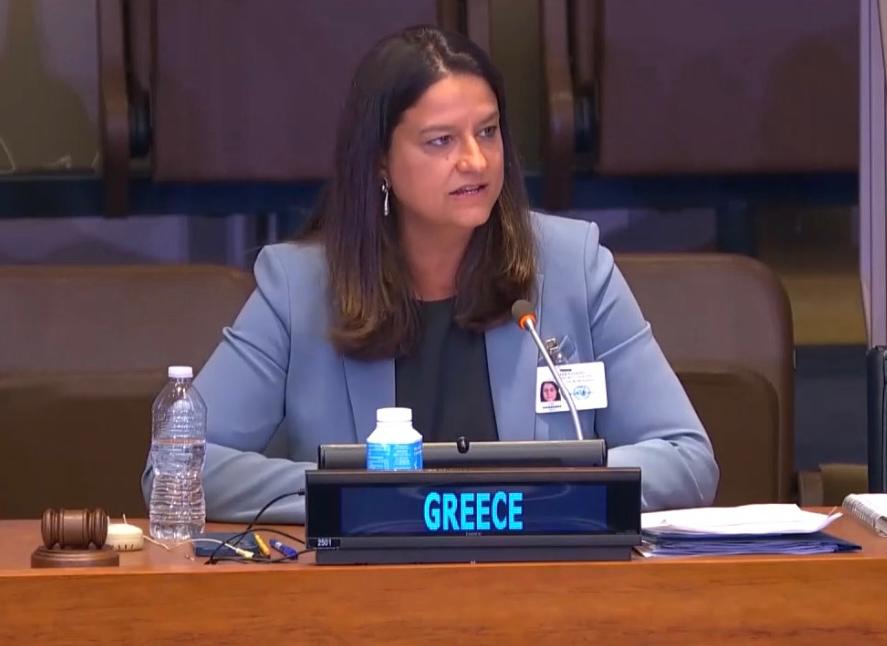Hamas' October 7 Attacks: A Bid To Sabotage Israel-Saudi Deal?

Table of Contents
Hamas' Strategic Goals and the Timing of the Attacks
Hamas' stated objectives for the attacks include the liberation of Palestine and the end of Israeli occupation. However, the timing of the attacks, coinciding with the sensitive and delicate phase of Israel-Saudi normalization talks, raises serious questions. Was this a mere coincidence, or a strategically timed blow aimed at undermining the peace process?
-
Evidence suggesting a connection: The attacks significantly increased regional tensions, potentially derailing the fragile momentum toward an agreement. The immediate aftermath saw a sharp increase in hostility, diverting attention and resources away from diplomatic efforts.
-
Counterarguments suggesting no connection: Some argue that Hamas operates independently of the evolving Israel-Saudi dynamic, and its actions were solely driven by its long-standing conflict with Israel. The attacks, according to this view, were part of a pre-planned operation unrelated to the ongoing negotiations.
-
Analysis of Hamas' potential gains or losses: Disrupting the Israel-Saudi deal could bolster Hamas' standing amongst certain Palestinian factions opposed to normalization. However, it could also alienate potential international supporters and lead to increased international pressure.
The Potential Impact on Israel-Saudi Relations
The attacks have undoubtedly cast a long shadow over Israel-Saudi relations. The immense loss of life and the resulting escalation of violence threaten to severely damage the trust and cooperation necessary for successful peace negotiations.
-
Short-term consequences: The attacks have almost certainly led to a significant delay, if not a complete halt, in the ongoing negotiations. The immediate priority for both nations is addressing the security crisis.
-
Long-term ramifications: The long-term consequences could be far-reaching, potentially pushing back the timeline for normalization indefinitely. The rebuilding of trust and the resumption of talks will require extensive diplomatic efforts.
-
Potential shifts in regional alliances: The attacks could influence regional power dynamics, potentially strengthening alliances with those opposed to normalization and weakening those advocating for it.
Alternative Explanations for the Attacks
While the timing raises suspicions, it's crucial to consider alternative explanations for Hamas' actions beyond sabotaging the Israel-Saudi deal.
-
Internal Palestinian political dynamics: Internal power struggles and competition within Palestinian factions could have influenced the decision to launch the attacks.
-
Potential responses from other actors in the region: The attacks could have been driven by a desire to provoke a regional response, or to solidify alliances with certain regional actors.
-
Responses from other Palestinian factions: The reaction of other Palestinian factions to the attacks will significantly impact the overall dynamics in the region and influence future developments. The attacks could, for instance, trigger more radical responses or unify various factions against Israel.
Analyzing the Evidence: Connecting the Dots (or Lack Thereof)
Determining whether Hamas deliberately aimed to sabotage the Israel-Saudi peace deal requires a thorough analysis of available evidence, carefully weighing both supporting and contradicting factors.
-
Evidence supporting the connection: The timing of the attacks, coupled with the potential consequences for the negotiations, suggests a possible deliberate attempt to derail the process.
-
Evidence refuting the connection: Hamas' stated objectives are consistent with its long-standing goals, seemingly independent of the Israel-Saudi talks.
-
Assessment of source reliability: Critical evaluation of intelligence reports and statements from various sources is essential to avoid biases and ensure a balanced assessment. Many statements will come from highly-vested parties, requiring caution in interpretation.
Conclusion: Hamas' October 7th Attacks and the Future of Israel-Saudi Relations
The question of whether Hamas’ October 7th attacks were a calculated attempt to scuttle the Israel-Saudi peace process remains complex and multifaceted. While the timing undeniably raises serious questions, conclusive evidence remains elusive. The attacks have undeniably created significant obstacles, jeopardizing the fragile momentum towards normalization. The path forward requires careful consideration of all factors and a commitment to de-escalation. Continue researching the complexities of the Israel-Saudi peace negotiations and the role of Hamas to better understand the future of regional stability. Share this article to raise awareness about the intricate dynamics at play and the critical need for a peaceful resolution. Understanding the potential link between Hamas' October 7th attacks and the Israel-Saudi peace deal is crucial for comprehending the future of the region.

Featured Posts
-
 Apofaseis Tis Synodoy Toy Patriarxeioy Ierosolymon Pliris Analysi
May 19, 2025
Apofaseis Tis Synodoy Toy Patriarxeioy Ierosolymon Pliris Analysi
May 19, 2025 -
 Haaland Tynnplate As Ny Millionavtale Innen Forsvar
May 19, 2025
Haaland Tynnplate As Ny Millionavtale Innen Forsvar
May 19, 2025 -
 Portugal And Spain Increased Electricity Interconnection After Power Failure
May 19, 2025
Portugal And Spain Increased Electricity Interconnection After Power Failure
May 19, 2025 -
 Kypros Oyggaria Syzitiseis Ypsiloy Epipedoy Gia To Kypriako Kai Tin Proedria Tis Ee
May 19, 2025
Kypros Oyggaria Syzitiseis Ypsiloy Epipedoy Gia To Kypriako Kai Tin Proedria Tis Ee
May 19, 2025 -
 See Photos Of Jennifer Lawrence And Husbands Relaxed Stroll
May 19, 2025
See Photos Of Jennifer Lawrence And Husbands Relaxed Stroll
May 19, 2025
